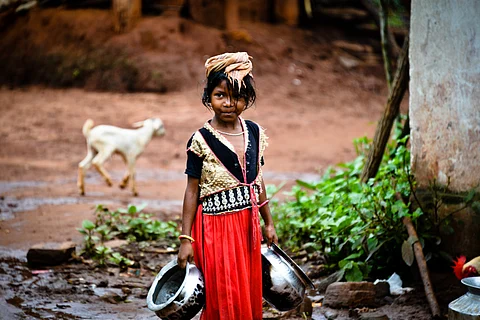

The ongoing water crisis across the globe is likely to worsen and is predicted to cause financial losses in lower-income countries amounting to an average GDP loss of up to 15 per cent by 2050.
This is around twice the estimated global average GDP loss of about eight per cent, according to a recent report released on October 16, 2024 by the Global Commission on the Economics of Water.
The Commission attributes this crisis to a combination of factors such as weak economic practices, unsustainable land use and persistent mismanagement of water resources — all exacerbated by the adversely changing climate.
For the first time in history, human activity is pushing the global water cycle out of balance, compromising the very foundation of human well-being and economic stability.
According to the Commission, the water crisis demands a reworking of policy frameworks — in other words, a new economics of water.
The report emphasised the necessity to manage water resources as a global public good rather than personally owned commodity.
“The new economics of water begins by recognising that the water cycle must now be governed as a global common good, that can only be fixed collectively, through concerted action in every country, collaboration across boundaries and cultures, and for benefits that will be felt everywhere,” said Henk Ovink, Executive Director, Commissioner, Global Commission on the Economics of Water was quoted in the report.
The water challenge becomes even more pressing when we recognise how much water each person needs daily to live a dignified life.
The Global Commission offered a new perspective on just access to water — while 50 to 100 litres per day is required to meet essential health and hygiene needs, a dignified life — including adequate nutrition and consumption — requires a minimum of about 4,000 litres per person per day.
As this vital resource becomes scarcer, food security and human development are at risk. But while the global water crisis is a tragedy, it is also an opportunity to transform the economics of water, noted the report and called for a shift in perspective to properly recognise water scarcity and the benefits it provides.
The report highlights a critical distinction between ‘green water’ which refers to moisture in soils and vegetation, and ‘blue water’ encompassing surface and groundwater.
The Global Commission emphasised that reliable supplies of green water are vital for generating rainfall, as well as for mitigating climate change and ensuring economic stability.
To address these challenges, the report underlines the need to redefine water governance. For this, it calls for a fundamental shift in how water is perceived and managed globally, advocating for a collective, mission-driven approach that engages all stakeholders.
The five missions proposed include: revolutionising the Food Systems, conserving natural habitats, establishing a circular water economy, enabling sustainable innovation and ensuring clean water access.
As the world struggles to find solutions to looming water crisis, the report provides a framework along with a roadmap with challenging goals stated under the five missions.
For instance, the mission for new revolution in food systems includes three goals and includes improving the water productivity by reducing water usage in agriculture by a third, while increasing crop yields.
Accelerating the shift to regenerative agriculture systems from 15 per cent of global cropland to 50 per cent by 2050 is another significant goal that the world should strive and work towards, suggests the report.
The world should also act seriously to meet the 30% target for the restoration of degraded forests and inland water ecosystems. This will encourage the regeneration of green water flows and stocks through precipitation and soil moisture retention, says the commission.
The emphasis on ‘green water’ conservation and restoration is significant when climate change is a short-term and long-term risk.
“A stable supply of green water is linked inextricably to stable patterns of rainfall, itself critical to economies and livelihoods. It also provides crucial support for the natural storage of carbon dioxide in the soil and mitigation of climate change,” the report stated.
If blue and green water remain threatened, the aims of the Global Biodiversity Framework to protect and restore biodiversity will be undermined.
The value of green water can be recognised and incorporated in Payment for Ecosystem Services (PES) schemes, stated the report while citing the strategic catchment assessment undertaken by the Mhlathuze municipality in South Africa to estimate in monetary terms the value its ecosystem provides.
As the majority of the global population resides in urban areas facing unstable and declining water resources, one of the missions emphasised the importance of promoting circular economy solutions.
According to the report, approximately 8% of current freshwater withdrawals—roughly equivalent to the total amount distributed by municipalities worldwide—can be reclaimed from wastewater each year.
To secure a just and sustainable water future for everyone, the ultimate ambition for global water governance should be the establishment of a Global Water Pact.
The report called for a strategic focus on securing funding through innovative ‘Just Water Partnerships’ and enhancing the global water data infrastructure to support the mission-driven approach.
“We can only solve this crisis by thinking broadly about how we govern water, recognizing its interactions with climate change and biodiversity, and mobilising all our economic tools,” Tharman Shanmugaratnam, president of Singapore and co-chair of the Commission, was quoted.
The commission also noted that at a time when the world is not on track to achieve the SDGs, the impact of water scarcity on both people and nature now jeopardises virtually each of the sustainable development goals as chartered by the United Nations.